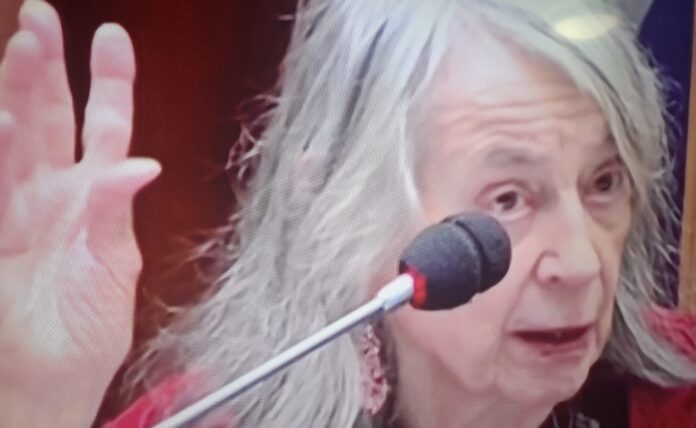The University of KwaZulu-Natal (UKZN) has distanced itself from Mary de Haas, a provincial violence monitor whose letter was largely used by suspended police minister Senzo Mchunu to disband the political killings task team (PKTT).
The university, which was born out of the merger of the University of Natal and the University of Durban-Westville in 2004, says De Haas is not one of its lecturers.
De Haas came under scrutiny when KZN police boss Lt General Nhlanhla Mkhwanazi questioned her research papers on violence and her credibility.
Credibility put through the grinder
Her credibility was further shredded on Tuesday when she appeared before the parliamentary Ad Hoc committee in Cape Town. The committee is probing allegations made by Mkhwanazi.
She had to make several concessions that she relied on information that was proven to be hearsay. And sometimes she lost her temper when she was questioned. At some point, ActionSA MP Dareleen James told her to stop laughing, as the matters being discussed were serious.
Her testimony was further questioned when she first claimed she was not a member of the ANC. But she later said she remembered that she once joined it briefly in the 90s and left.
UKZN said its association with her is “very limited”.
Not a professor at the university
“For clarity, Ms de Haas is not an employee of the university and is not a professor at UKZN. She retired from the then University of Natal in 2002. She served as a senior lecturer and program director in social anthropology.
“For context, the University of Natal merged with the University of Durban-Westville in 2004 to form the University of KwaZulu-Natal. Her current association with UKZN is limited to the title of honorary research fellow in the School of Law. This is an honorary position and does not involve employment or teaching responsibilities.
While she has collaborated with members of the Navi Pillay Research Group, she also conducts independent research, which is entirely separate from the university. And this includes work on violent crime and policing. The university will not comment on evidence presented before the Ad Hoc committee,” the university said in a statement.





